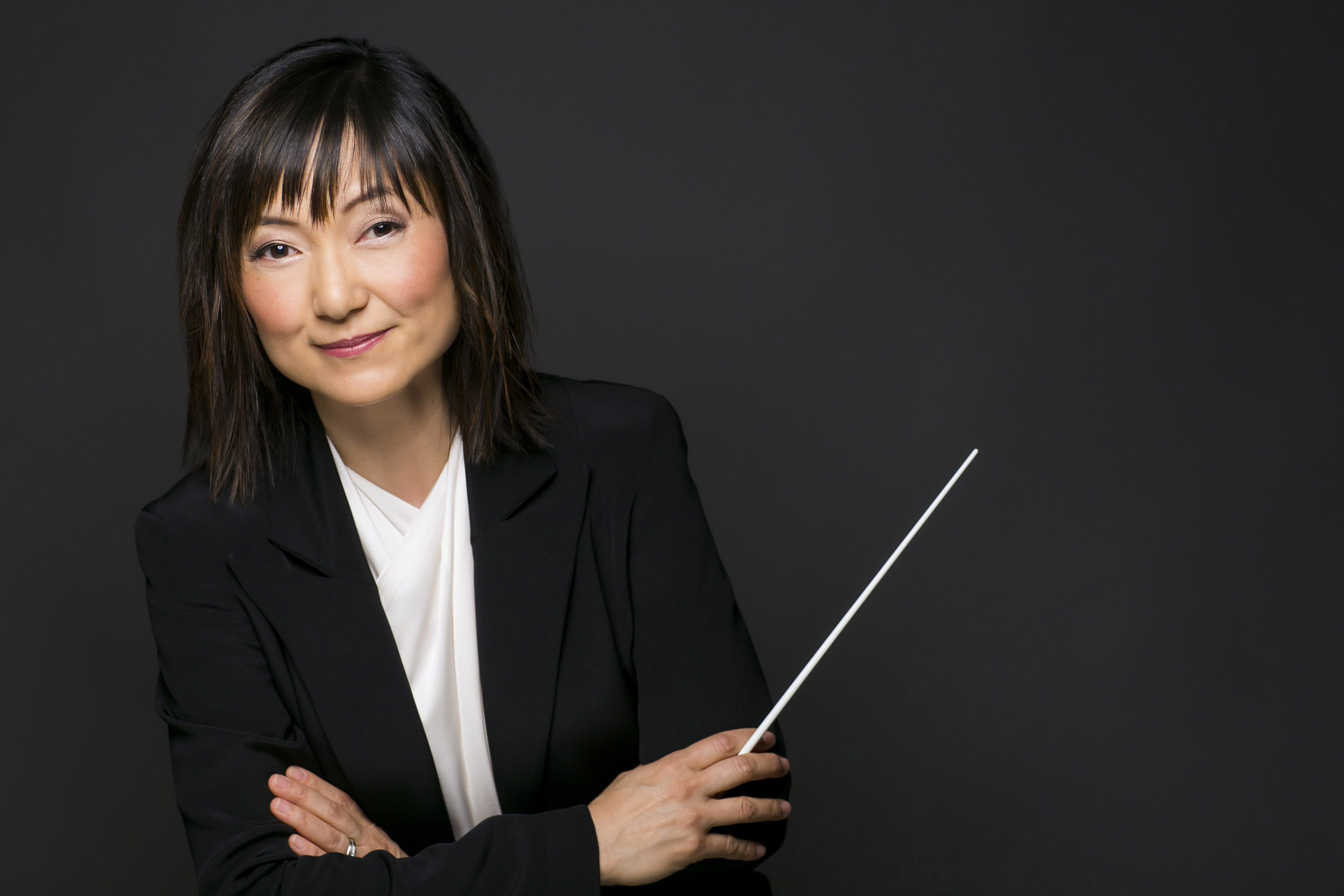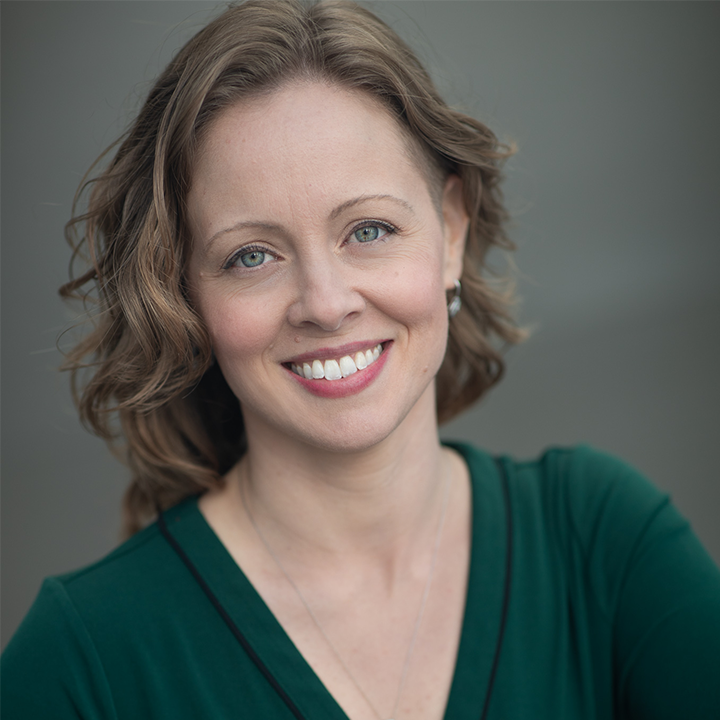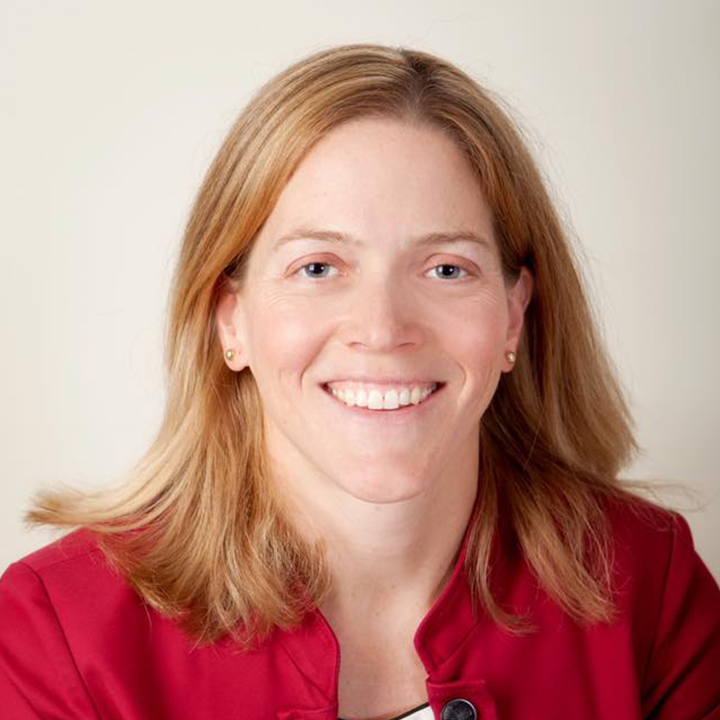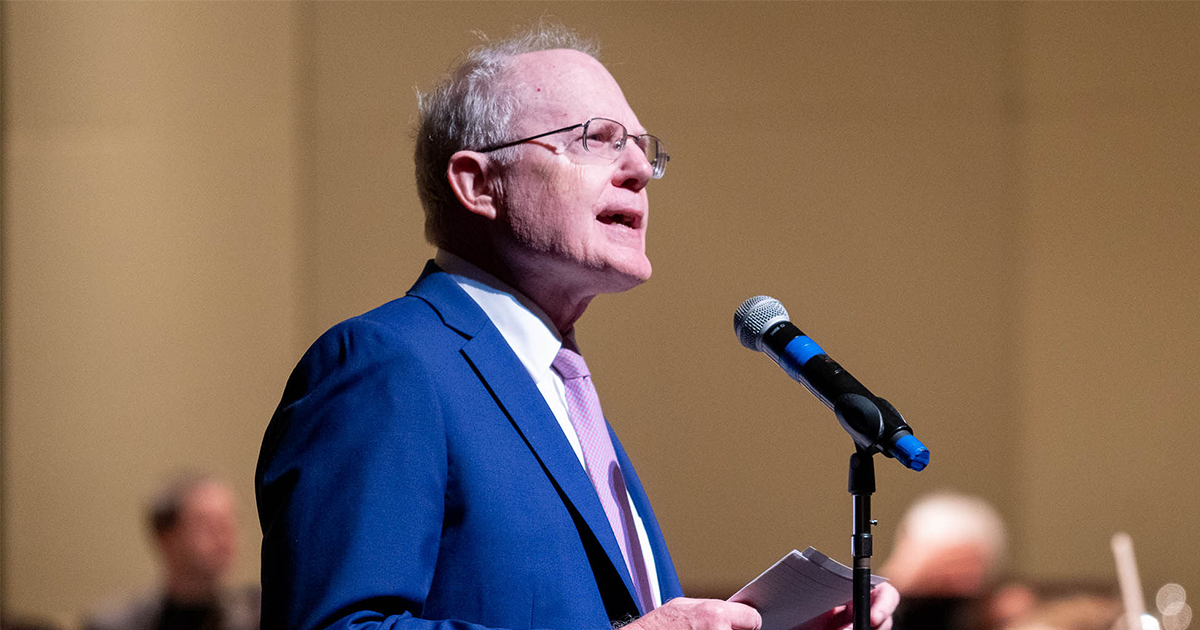Note from ACSO: Our membership network is full of incredible people with a wealth of life experiences, talents, and diverse perspectives and backgrounds. We want to share their insights, points of view, and wisdom with all of you, as well as raise the voices of individuals who are making a difference for the classical music field. Our guest blog series features people from different communities throughout California and the western region, from different sizes and types of classical music organizations, and with different jobs and responsibilities. They will share what they have learned, express their opinions about the sector, and ask challenging questions that will help us shift our thinking and be better advocates for this art form that we all love.
Don't Be Afraid to Break Old Habits
 I’m someone who loves a challenge, whether it’s learning to conduct a new work or bench pressing 150 pounds. Yes, me. Just shy of 110 pounds was *challenged* recently by my trainer to do just that. While it was difficult, and didn’t think I could do it, I did. It was quite life affirming and opened a whole new mental and physical avenue for me.
I’m someone who loves a challenge, whether it’s learning to conduct a new work or bench pressing 150 pounds. Yes, me. Just shy of 110 pounds was *challenged* recently by my trainer to do just that. While it was difficult, and didn’t think I could do it, I did. It was quite life affirming and opened a whole new mental and physical avenue for me.
Was I afraid? Yes. The thought of pulling something (or worse breaking something) was first and foremost. The thought of doing something that might threaten my career was very real. But, I decided I need to do this, and boy I’m glad I did. Not only did this newness inspire me to hit the gym more, it challenged me to think differently about HOW I go to and experience the gym.
You might be thinking, "What on earth does this have to do with anything music related?" A whole lot actually.
Oftentimes, we, as musicians, music directors, executive directors, boards, get stuck in a rut. We let our creative muscles atrophy.
We—and I count myself in the “we”—are in the habit of repeating our successes, even if they become less successful and stale over time. Season in and season out, presenting and doing the same thing year after year. This is a habit we need to break.
Are we challenging ourselves to offer new experiences or seizing different opportunities to connect to our audiences or new audiences in different ways?
If we want reach new audiences and stay relevant to our communities, we, as creative organizations and musicians, need to make this a priority. Much like I took on lifting 150-pound weights, we need to have the confidence to lift the giant weight of doing things in more creative and inventive ways.
I feel strongly that our arts organizations should serve our communities, and this may mean we need to think and present music differently. Let’s embrace a new “spirit of creativity” that is meaningful to these communities. In my position of Music Director of the Fresno Philharmonic, and as I approach my third season, there is even more momentum to instill this “spirit of creativity” to all that we do. Little by little, program by program.
Always thinking creatively and assessing if there is a rut can be exhausting and unnerving. It can be hard to be honest and even harder still to accept what you find.
Think of it this way: Say there is a new restaurant in town, but you always had good food at one that you often frequent. You’re hungry and you want to eat, but the thought of being disappointed at a new place is making you avoid something new. So, instead of going to the new restaurant and having some potentially exciting new food, you go to the same old, same old. Did you eat? Yes. Was it good? Yeah, perhaps, but not exciting. However, would you have found a new place to go to and had a new experience? No. (And, for the record, I would always try the new place; I’m a foodie through and through!)
The mark of a good and successful business is its ability to adapt and grow, change and challenge itself. And I firmly believe music is a creative business. As arts leaders, we MUST continue to push our creativity and bring in new ideas!
I truly believe that those in artistic leadership roles should be the role models for our musicians, our boards, our audiences. The fear of failure or experiencing something unsuccessful should not be our first thoughts, and truthfully, they often are. We need to stop looking at change as being a disruptive impediment. We must expand our thinking beyond our monetary value and place the lasting impact in our communities squarely in the driver’s seat.
Don’t worry, I’m not recommending we throw all caution to the wind. I’m just encouraging you to do something, try something different and challenging. No matter how small All it takes is one step. Like we did in Fresno. One small change had a huge impact!
In Fresno, we had a “Meet the Artist Luncheon” series. It was held at the same place and in the same way year after year. While it was attended, the event started to feel stagnant and was not relevant to the dynamic changes that were taking place on stage.
So, we decided to try a new approach. Thanks to my awesome staff – Stephen Wilson and Annie Schmidt – we started holding our luncheons in places in the community that were relevant to what was happening on stage. We formed new alliances and partnerships with these spaces and organizations, opening up and expanding our reach and making many new connections. The result has been overwhelmingly positive.
We broke the habit of always falling back on what we knew, we challenged our creative muscles, and we had a fabulous work out -- and the rewards have been wonderful!
About the Author: Rei Hotoda, the newly appointed Music Director of the Fresno Philharmonic, is rapidly becoming one of America’s most sought after and dynamic artists. She has appeared as a guest conductor with many of today’s leading ensembles, including the Symphony Orchestras of Baltimore, Chicago, Dallas, Edmonton, Jacksonville, Utah, Toronto, and Winnipeg, as well as the Civic Orchestra of Chicago and the St. Louis Symphonies, among others. She most recently made her conducting debuts with the Nashville and Asheville Symphonies. Read more here.
 The American Youth Symphony adopted a theme for its 2018/19 season: The Year of the Woman. It started as an idea for one concert -- a program comprised entirely of female composers.
The American Youth Symphony adopted a theme for its 2018/19 season: The Year of the Woman. It started as an idea for one concert -- a program comprised entirely of female composers. 

 We are thrilled to welcome Ben Kutner as our new Membership and Development Manager.
We are thrilled to welcome Ben Kutner as our new Membership and Development Manager. Monday, February 10
from 4:30-6:30 PM
Monday, February 10
from 4:30-6:30 PM

 One of ACSO’s many admirable features is the support it gives small budget orchestras (SBOs) like mine, the Downey Symphony Orchestra (DSO). To an extent, all orchestras share the same challenges and opportunities, though on different scales and with different resources. But SBOs have to be especially close to the communities that they serve and that sustain them.
One of ACSO’s many admirable features is the support it gives small budget orchestras (SBOs) like mine, the Downey Symphony Orchestra (DSO). To an extent, all orchestras share the same challenges and opportunities, though on different scales and with different resources. But SBOs have to be especially close to the communities that they serve and that sustain them.  People often assume they know what a youth orchestra is simply by the words “youth orchestra." While “youth orchestra” or “youth symphony” may seem self-explanatory, misunderstandings even among the musically inclined are surprisingly common.
People often assume they know what a youth orchestra is simply by the words “youth orchestra." While “youth orchestra” or “youth symphony” may seem self-explanatory, misunderstandings even among the musically inclined are surprisingly common. I recently had a realization. I was working on an upcoming talk I’m going to be giving, and in one of my dry-runs I rattled off a line about how we need to really get our arts marketing into the 21
I recently had a realization. I was working on an upcoming talk I’m going to be giving, and in one of my dry-runs I rattled off a line about how we need to really get our arts marketing into the 21 Loribeth Gregory-Beck currently serves as the Director of Education & Community Engagement at the Santa Barbara Symphony, where she oversees programs and cultivates community partnerships. With experience as a teacher, arts administrator, and in business management, Loribeth brings a breadth of knowledge and practice to her work in education. At the Los Angeles Philharmonic, she led the Young Composer Programs (Composer Fellowship Program, National Composers Intensive) and projects for the Youth Orchestra Los Angeles (YOLA), through which she worked with prominent artists in the classical music industry, such as Andrew Norman, Gabriela Ortiz, Tania León, and the International Contemporary Ensemble, and prepared students for performances at the Walt Disney Concert Hall, Hollywood Bowl, and Ojai Music Festival. In addition to her work in music education, Loribeth has presented original research papers at conferences for the Society for Ethnomusicology and the Association for Asian American Studies. Loribeth earned an M.A. in Ethnomusicology from University of California, Riverside, where she was a lecturer, and a B.A. in Music, magna cum laude, and a minor in Anthropology from Webster University.
Loribeth Gregory-Beck currently serves as the Director of Education & Community Engagement at the Santa Barbara Symphony, where she oversees programs and cultivates community partnerships. With experience as a teacher, arts administrator, and in business management, Loribeth brings a breadth of knowledge and practice to her work in education. At the Los Angeles Philharmonic, she led the Young Composer Programs (Composer Fellowship Program, National Composers Intensive) and projects for the Youth Orchestra Los Angeles (YOLA), through which she worked with prominent artists in the classical music industry, such as Andrew Norman, Gabriela Ortiz, Tania León, and the International Contemporary Ensemble, and prepared students for performances at the Walt Disney Concert Hall, Hollywood Bowl, and Ojai Music Festival. In addition to her work in music education, Loribeth has presented original research papers at conferences for the Society for Ethnomusicology and the Association for Asian American Studies. Loribeth earned an M.A. in Ethnomusicology from University of California, Riverside, where she was a lecturer, and a B.A. in Music, magna cum laude, and a minor in Anthropology from Webster University. I’m
I’m 